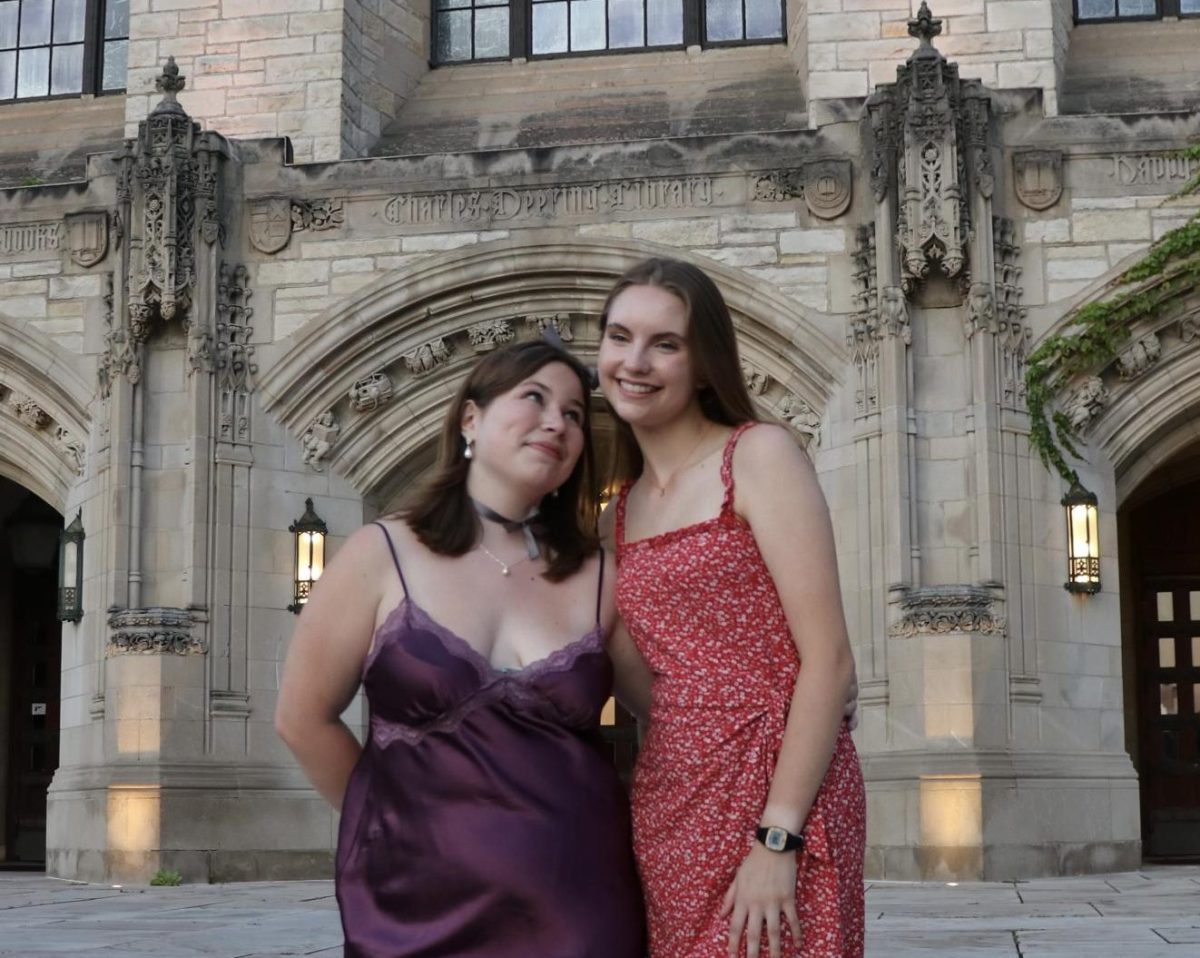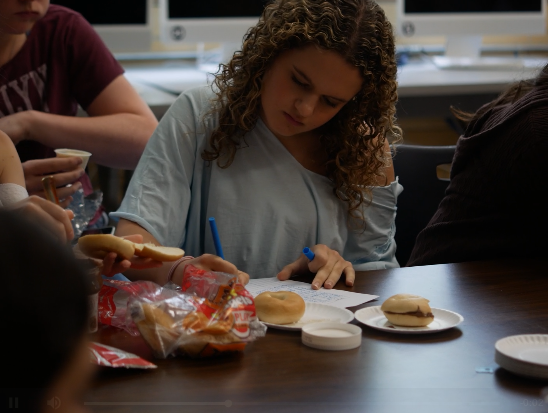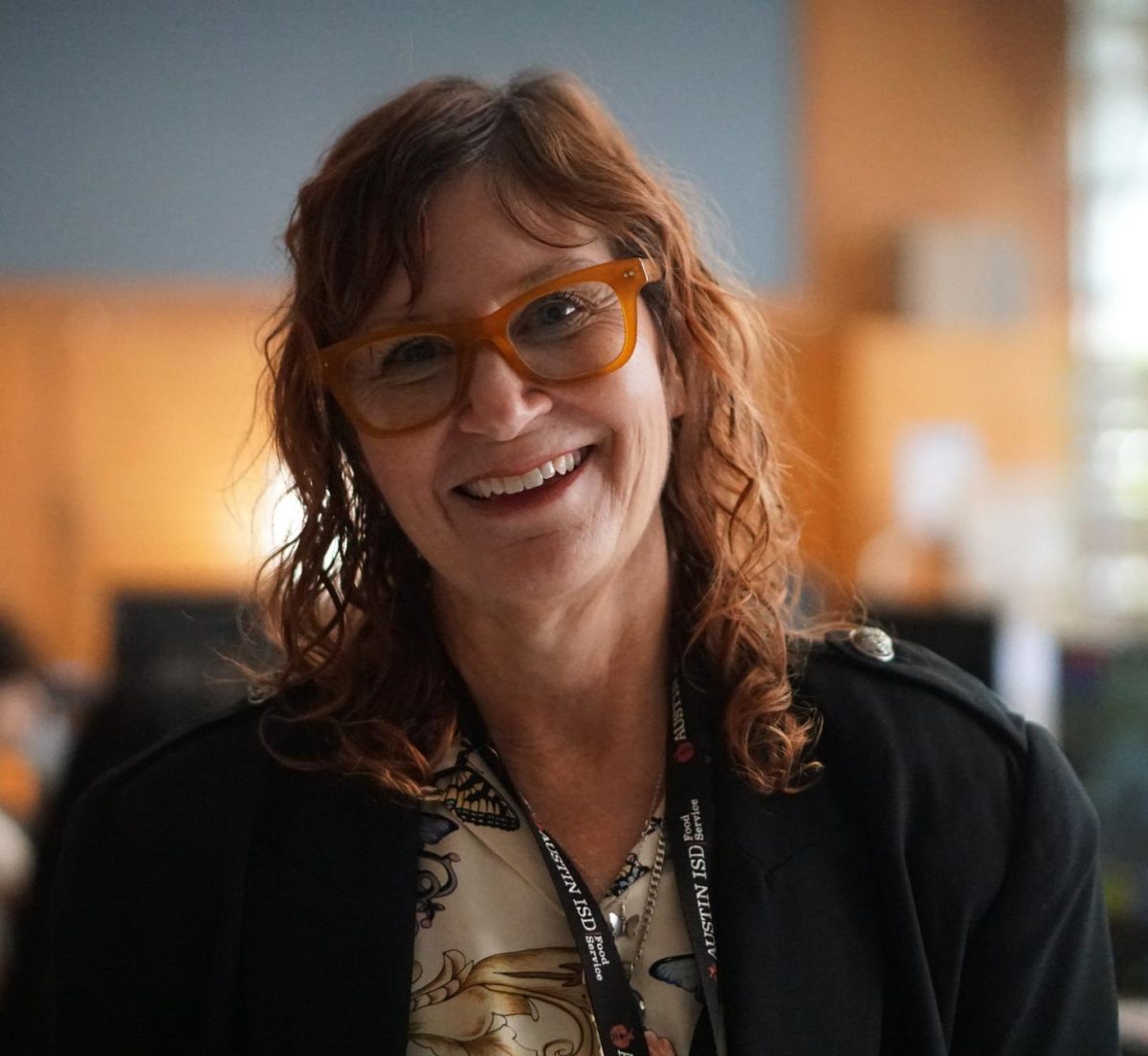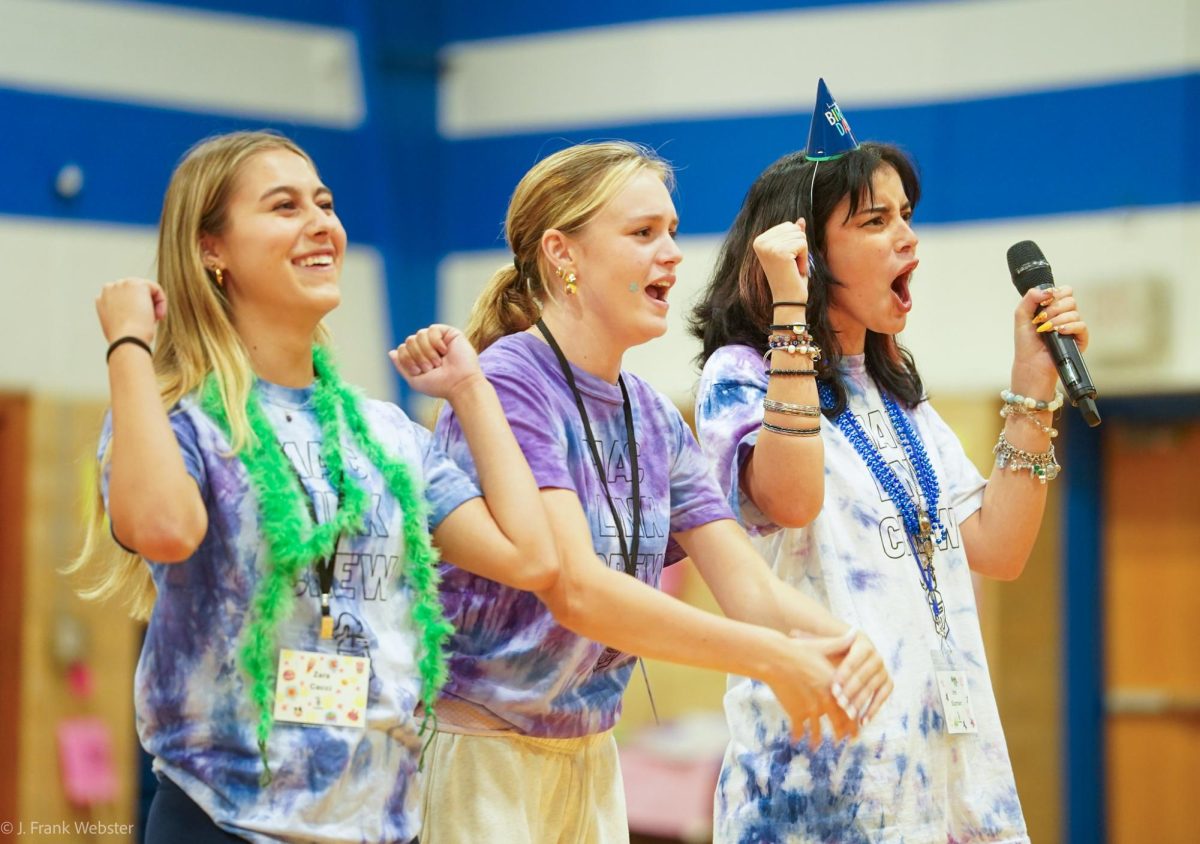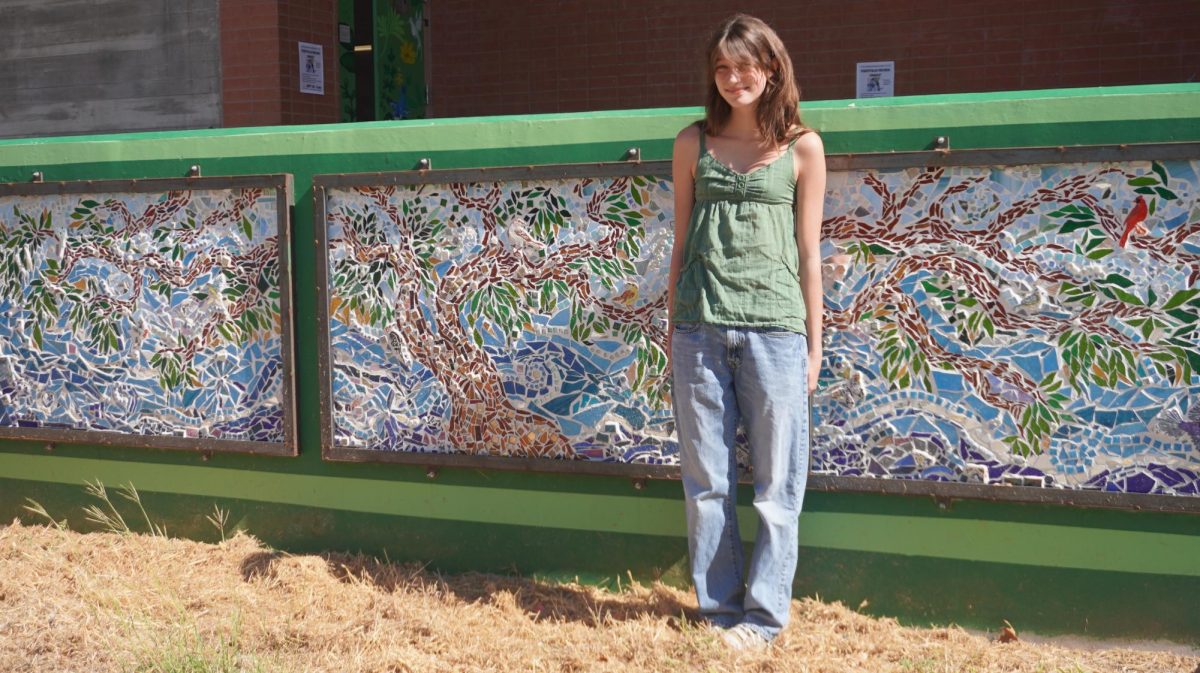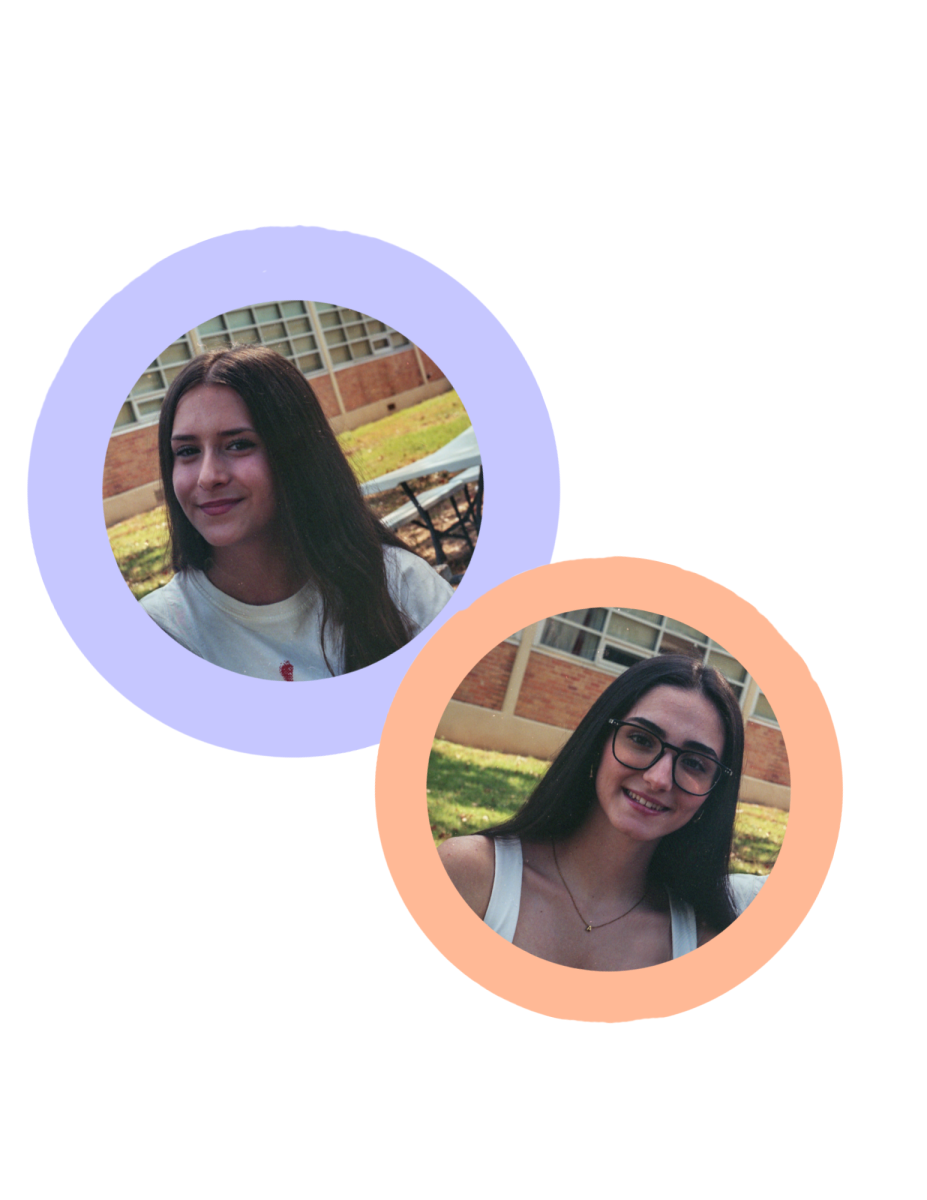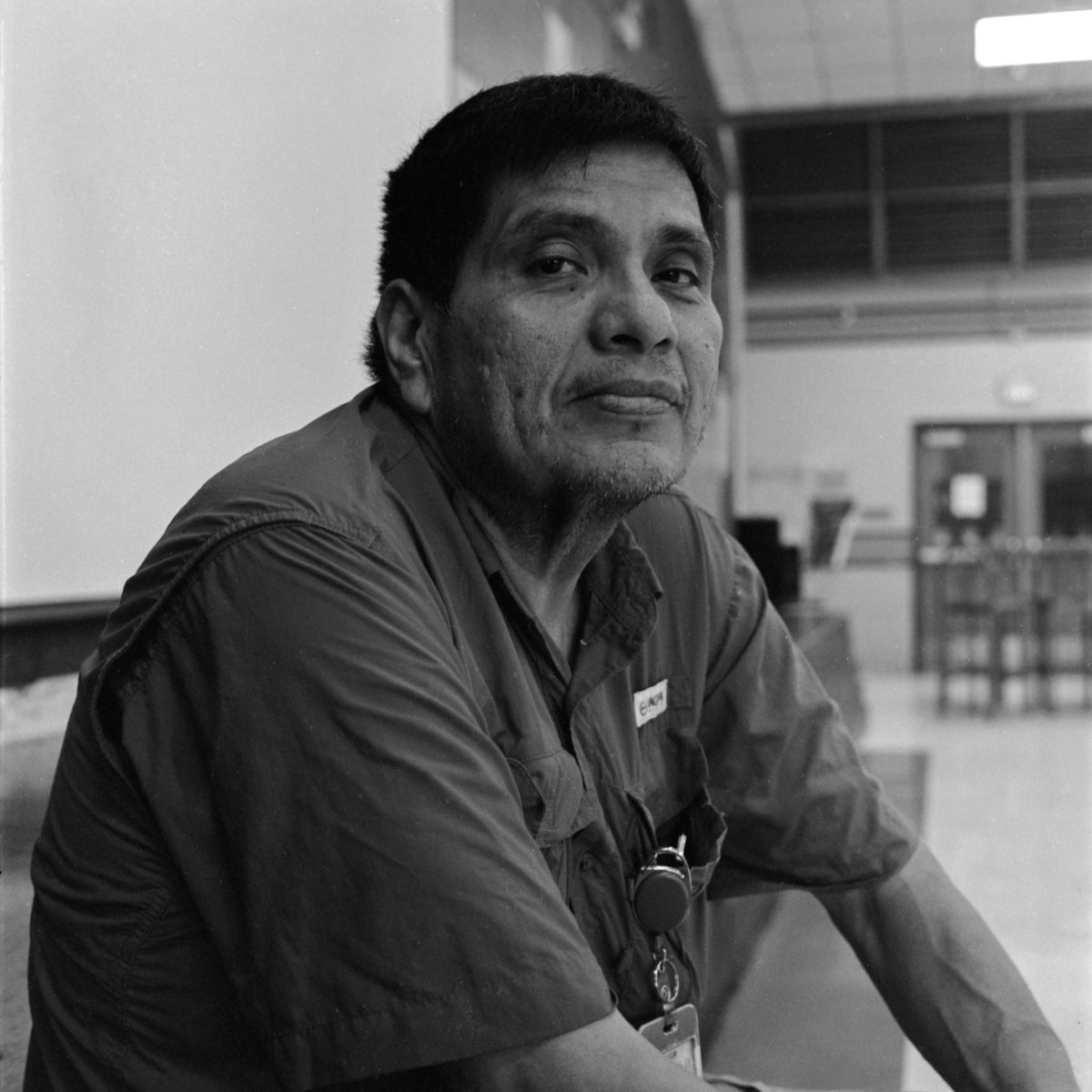Trading in triple-digit temperatures for 70-degree days seems like enough of a reason to get out of town for a month, but for seniors Ingrid Smith and Alice Scott, two co-editors in chief for the Shield, their trip was much more about business than the weather. Smith and Scott spent four weeks at the Medill-Northwestern Journalism Institute in Evanston, Ill..
The intensive summer program, hosted by Northwestern University, aims to hone the writing and reporting skills of high school seniors through courses taught by professors and some of the school’s most distinguished alumni as guest speakers.
“We did masterclasses with writers from The Washington Post and The Wall Street Journal, and Pulitzer-Prize winning authors and photographers, all Northwestern graduates,” Smith said. “We had courses in things like ethics, how to write different kinds of stories, interviewing, broadcast labs, basically everything under the journalism sun.”
According to Scott, four weeks hardly felt like enough time for Northwestern to fit in all of the lessons they wanted to teach their “cherubs,” the nickname given to young journalists in the Medill institute. Lectures, activities and guest speaker sessions began at 9 a.m. and ended around 9 p.m., only breaking for meals.
“They packed the days full of things to do for us,” Scott said. “It was interesting to see what success looks like for different people. They brought in a filmmaker, they brought in a Pulitzer-Prize winner, they brought in reporters who do all-day stories, breaking news stories and long-term work. It was really cool because, fingers crossed that we could get into Northwestern, that could be us.”
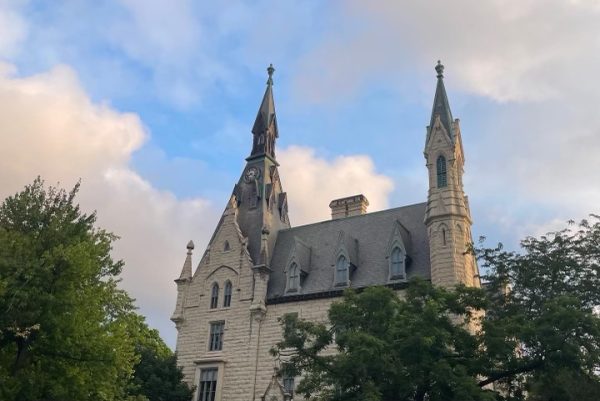
When they weren’t taking classes and listening to the success stories of professional journalists and writers, Smith and Scott stayed occupied with their rigorous homework.
“There were lots of assignments with super quick turnaround times and super limited word counts,” Smith said. “Before, I viewed myself as someone who could only write long form, and all of my stories required a lot of research and time. But I learned that I can write really fast and the stories will still be good, so next year I’ll use those skills to help push out more content for The Shield.”
Like Smith, Scott felt that the high-pressure nature of the writing assignments helped her grow as a journalist. Of these assignments, she was most impacted by a rapid reporting exercise on the very first day. Through a series of staged press conferences and interviews, the Cherubs reported on a hypothetical crime case acted out by camp instructors. Because this breaking-news scenario is considered top-secret by generations of camp instructors and cherubs, all that can be said is that it “unfolded into a very weird story.”
Despite the outlandish nature of the activity, Scott appreciated that she had to rapidly write short, hard-hitting news stories about the case.
“Maybe that’s not totally realistic to what it’s like to be a journalist in the real world, but it was good for me because I’m the type of person who likes to really nurse a story. But all of these stories were 250 words, and you had 30 minutes to write them.”
Although they at times found themselves overwhelmed with jam-packed schedules and constant homework, Smith and Scott still took full advantage of what little free time they had. And despite being in what she called her “favorite city in the world,” Smith cherished the people around her as much as she did the place.
“I spent basically every spare moment trying to bond with people, because it was so cool being around other rising seniors with a passion for journalism,” Smith said. “We did things like getting ice cream all the time, karaoke night and cherub feud. Lots of late night chats in the bathroom while brushing teeth, “Speak Now (Taylor’s Version)” listening parties, just lots of fun bonding on the floor in the common room.”
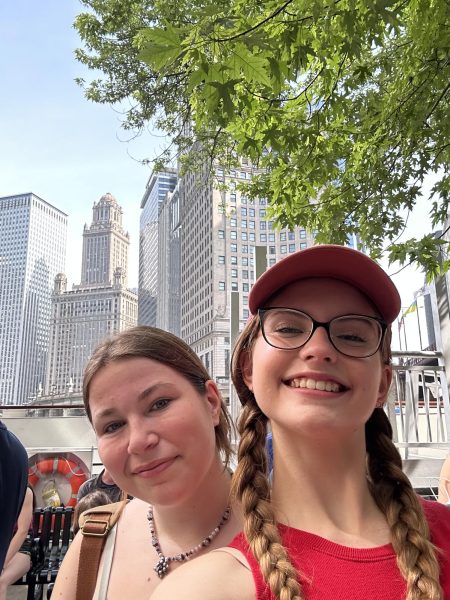
In true Texas fashion, one of Smith’s camp highlights was winning second place in the talent show for her fiddle performance that had the whole camp buzzing. Both Smith and Scott, however, said their favorite moment from their free time was waiting for sunset on the shore of The Lakefill.
“Sometimes, we’d get out kind of early, around 8 or 8:30 p.m. Whenever that happened, it’d be this collective rush to do something fun,” Scott said. “It was one of those nights, so a bunch of people went out, sat on the rocks, took a bunch of pictures and just laughed and talked and watched the sunset.”
 Smith thinks that as editors in chief, her and Scott’s individually strengthened journalism abilities will naturally seep into their publication.
Smith thinks that as editors in chief, her and Scott’s individually strengthened journalism abilities will naturally seep into their publication.
“We came to learn how to be better writers ourselves and improve in that way rather than taking editorial leadership classes,” Smith said, “but hopefully by becoming stronger journalists, we can bring new skills to The Shield.”
Of these skills, Scott feels one of the most valuable for her position is a deep understanding of the ethical ins and outs of journalism, how to approach these dilemmas when they arise at The Shield and how this will contribute to the identity of her publication.
“With ethics, there will never be a correct answer,” Scott said, “but I do think I’m equipped with the tools to have more of those discussions, and at the end of the day, that’s what the editor-in-chief does.”



